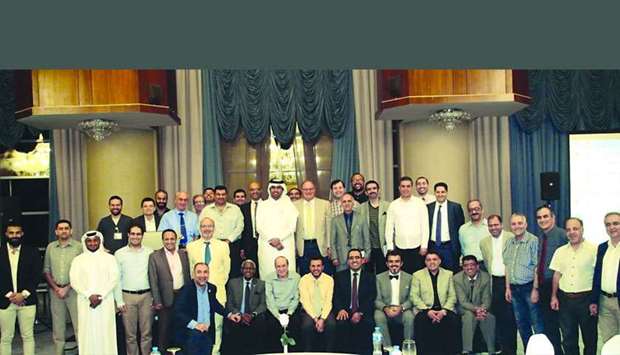A total of 70 physicians attended the second meeting of the Men's Health Club, organised by officials from Hamad Medical Corporation’s (HMC) Urology Department recently to discuss the link between obesity and infertility in men.
The participants were from the private and public sectors and specialising in urology, nephrology, endocrinology, diabetes, cardiology, and community medicine.
Dr Khalid al-Rumaihi, head of urology at HMC, said the group, which held their inaugural meeting earlier this year, discussed the latest scientific and research developments related to obesity and its impact on men’s health. Six scientific papers examining the effect of obesity on men’s health and specifically how obesity impacts male reproductive potential were discussed. There is emerging evidence that male obesity negatively impacts fertility through changes to hormone levels, as well as direct changes to sperm function and semen composition.
Attendees discussed the significance of recent scientific findings, noting the high rates of obesity in Qatar and the associated health complications. According to the World Health Organisation, worldwide more than 1.9bn adults, 18 years and older, are overweight and more than 650mn are obese. Obesity has reached epidemic proportions globally, with at least 2.8mn people dying each year as a result of being overweight or obese.
The physicians in attendance discussed the important role healthcare providers can play as role models for a healthy lifestyle and also in communicating the importance of healthy lifestyle habits such as exercising, eating a balanced diet, and reducing stress. Healthy lifestyle choices can help promote weight loss, prevent weight gain, and enhance overall health. The group discussed the significance of emphasising the importance of healthy choices from childhood, with a specific focus on limiting consumption of fast food and encouraging sport and other forms of physical activity.
The Men’s Health Club was established earlier this year to provide a platform to discuss the latest scientific and research developments related to men's health. The group aims to bring public attention to the importance of men's health conditions while also educating medical professionals about the latest research related to conditions that affect men’s health, both physical and psychological, from puberty to old age. The group meets every three months.

